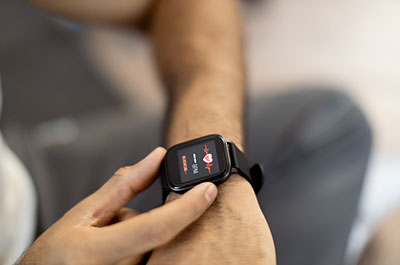For many women, a mammogram can be a nerve-wracking experience full of ‘what-if’s,’ unknowns and other hypotheticals. But often, knowing how to prepare, what to expect and the facts surrounding routine screenings can help put anxious minds at ease.
For example, according to the American College of Radiology, out of every 100 women who get a screening mammogram, 90 will be told that their mammograms are normal.
Of the remaining 10 who are asked to return for additional mammograms or ultrasounds, six will be reassured that their mammograms are normal, two will be asked to return for a follow-up exam and two will be recommended for a biopsy.
“Even out of the two that we recommend for biopsy, 70 to 80% turn out to be benign,” says Sabala Mandava, M.D., vice chair of radiology and a breast imager at Henry Ford Health.
Of course, knowing that the odds are in your favor is only one way to help prepare you for a mammogram.
Here are a few other tips to make your next breast imaging test go as smoothly as possible:
- Talk to your technologist. It’s very common to be a little nervous before a mammogram. Voicing those thoughts can be helpful for both you and anyone helping with your exam. “If you’re anxious, I want to know why,” Dr. Mandava says. “Is it anxiety about the pain of the mammogram or about the test? For most women, it tends to be about what the results are going to be, and that’s when I like to bring up the statistics.”
- You’re in control. It’s also common to experience some discomfort during the compression portion of your screening. Nowadays, many health care systems, including Henry Ford, use mammogram techniques that allow women to increase or decrease the amount of compression applied to their breast during a mammogram. “Women often compress more than we would ourselves,” Dr. Mandava says. “We also like to remind people that we compress because we care.”
- Skip the deodorant. Lotion, deodorant and powders can show up on mammogram images and look like calcifications, pseudo-lesions and other abnormalities that technologists are looking for. If you forget, don’t worry; your technologist will provide you with a wipe to clear any products away.
- Leave jewelry at home. Necklaces and earrings can appear on an image and block the breast tissue behind it. If you’re wearing something obtrusive, your technologist will likely remind you to take it off.
- If breastfeeding, nurse or pump beforehand. The vast majority of women don’t start annual breast screenings until after the age of 40. But if you’re still breastfeeding, nurse or pump about an hour beforehand. Breast milk tends to appear very dense on a mammogram, making it difficult to see the breast tissue appropriately.
- If there is an abnormality, you’re in the right place. In the event that something suspicious is found on your mammogram, you’re surrounded by people who know exactly what your next steps will be. Plus, by getting a mammogram, you’re giving yourself the best chances to handle the situation appropriately. “Remember that the percentage of getting an abnormal result is very low,” Dr. Mandava says. “But if you do get one, then you want your abnormality to be found as early as possible.”
Despite the anxiety that comes with them, women of all backgrounds should incorporate screening mammograms into their annual to-do list. “Three out of four breast cancers are found in women without any family history or who are not high risk,” Dr. Mandava says. “Thankfully, we’ve come so far in advancement and treatment that the earlier we find a cancer, the higher likelihood that the treatment will be very effective and you’ll be disease free.”
Talk to your doctor about when you should get a mammogram and other important health screenings. Visit henryford.com or call 1-800-436-7936 to make an appointment or find a primary care provider.
For more information on breast cancer or to schedule a mammogram today, visit henryford.com/breastcancer.
Dr. Sabala Mandava is a board-certified radiologist, a breast imager, and the vice chair of radiology at Henry Ford Health.



